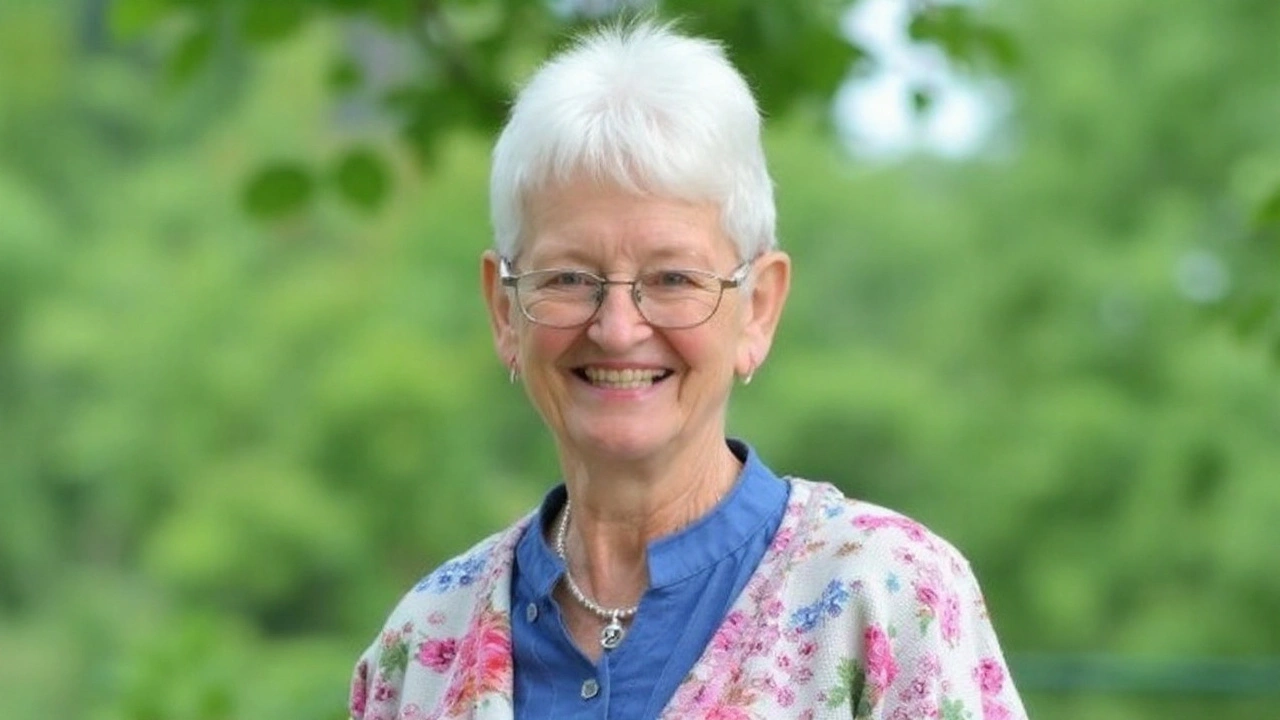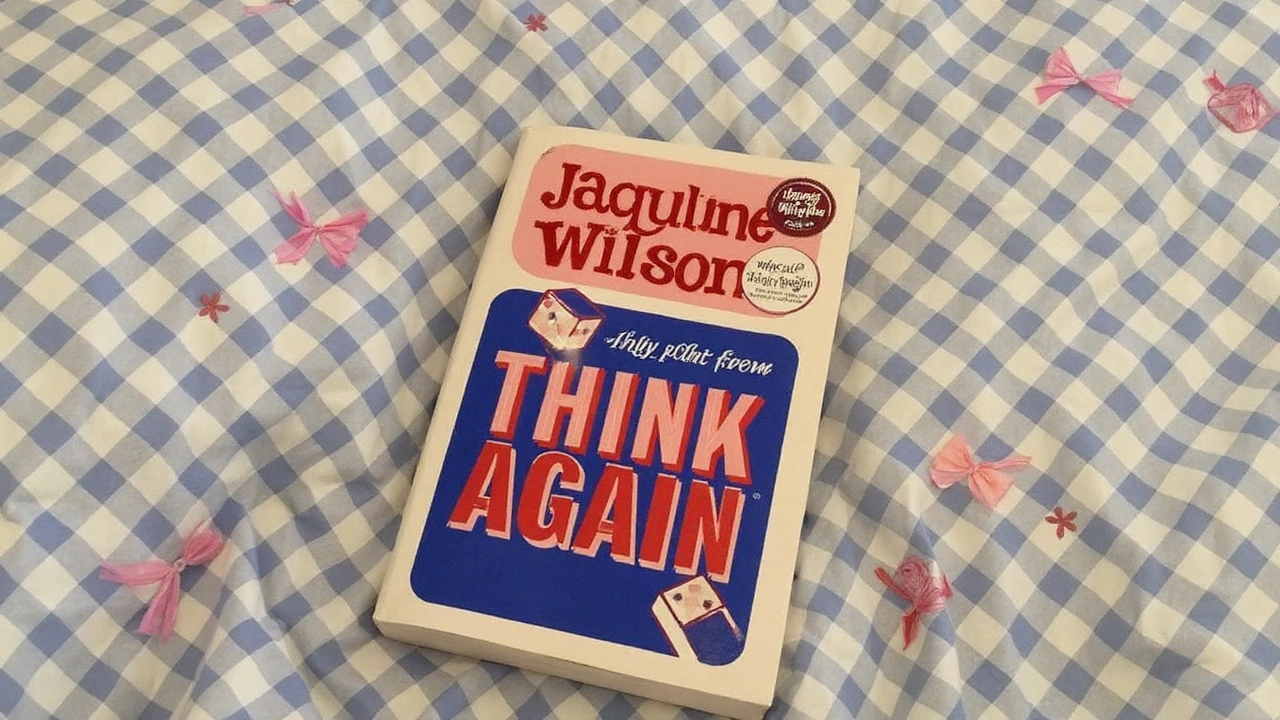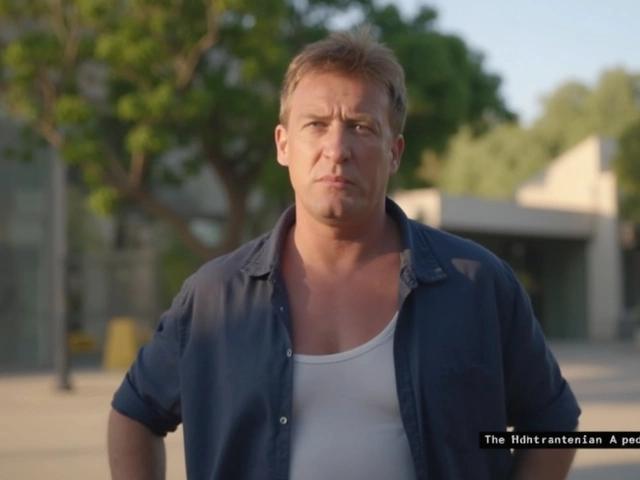Jacqueline Wilson’s ‘Think Again’ turns childhood comfort into adult shock
The book that raised so many of us just grew up—and not everyone is ready for it. In Think Again, Jacqueline Wilson takes the beloved Girls series into adult fiction, bringing Ellie Allard, Nadine, and Magda into their late thirties and early forties. It’s raw, complicated, and sometimes uncomfortable. That’s the point. Published in September 2024 and running 432 pages, Wilson’s first adult novel is already shortlisted for Fiction Book of the Year 2025 at the British Book Awards.
Ellie has the life she once wanted on paper: she’s an artist, her daughter Lottie is grown, and her flat comes with a view that looks like success. Then forty arrives, work implodes, and the floor gives way. She reconnects with old friends—Nadine still leans into gothic glamour, Magda is navigating stepmother territory in her third marriage—and reaches for new anchors. She also starts dating Gary Windsor, the teacher readers knew as Mr. Windsor. That choice, more than any other, is rattling long-time fans who met Ellie as a teenager.
Think Again comes with hard warnings. The story includes:
- Eating disorders and body shaming
- Physical abuse
- Parental death and grief
- Explicit adult relationships
This is not a book for kids. It’s aimed at the readers who once hid Wilson paperbacks under duvets and are now trying to keep their lives from unravelling by lunchtime.
What Wilson brings back—and what she changes
Wilson has never flinched from tough subjects. In the Girls books, she wrote honestly about friendship pecking orders, family mess, and bodies that never seemed to fit. The adult version keeps that honesty but dials up the stakes. Careers collapse. Parents fail. Partners disappoint. The past refuses to stay put.
Ellie’s voice sits at the center, wrestling with success that feels hollow and choices that don’t add up anymore. Lottie’s presence matters too. She’s grown, which means Ellie is parenting a young adult while trying to hold onto her own sense of self. That lets Wilson show both sides of the generational mirror: the daughter testing boundaries and the mother who’s exhausted by them.
Nadine and Magda aren’t nostalgia props. Nadine’s persona—still tall, still sharp—hides bruises that come with age: money stress, fear, and the grind of staying interesting. Magda’s on her third marriage, learning that being a stepmother has fewer rules and more landmines than anyone admits. Their return gives Ellie a way to measure distance: who they were, who they became, and who they might still be.
Then there’s Gary. The legalities are straightforward—they’re two adults. The psychology is not. Readers who remember Mr. Windsor as the teacher in the room now have to square that with a romance. Power dynamics don’t vanish just because time passed. Wilson leans into that discomfort. It’s messy, sometimes queasy, and honest enough to spark arguments in any book club.
The body image thread cuts deep. Wilson has written about food and shape before, but here the consequences are adult: long-term patterns, medical reality, shame that sits in the bones. The book doesn’t glamorize or sensationalize, but it does show relapse, coping, and the way old habits camouflage themselves as control. If that’s a trigger for you, proceed carefully.

Why nostalgia is clashing with adulthood
The clash isn’t only about explicit scenes. It’s about memory. Many readers met Ellie at 12 or 13 and built a gentle mental space around those books. Think Again rips open that space and asks a hard question: what did we expect these characters to become? Flat, polished versions of our teens—or adults who make the kind of bad choices we recognize in ourselves?
That’s the tension behind the mixed reviews. Some readers appreciate the honesty: the scrambled careers, the loneliness in busy lives, the quiet violence that doesn’t leave visible marks. Others feel blindsided, especially by Gary and by the heaviness of the themes. The dissonance is real. It’s unnatural to watch characters we loved in school uniforms navigate sex, trauma, and grief. But it’s also faithful to what Wilson has always done—she writes the truth of an age group without sanding off the edges.
The award nod suggests the gamble worked for judges. Shortlisting for a major prize this fast signals craft, not just controversy. Wilson also says she plans to revisit The Illustrated Mum with another adult sequel, which tells you this isn’t a one-off experiment. She’s building a bridge from her children’s catalog to an adult universe where consequences echo.
So who is this for? If you grew up with the Girls series and you’re okay seeing those characters as fully adult—with love lives you might debate and trauma that isn’t tidy—you’ll find sharp observation and uncomfortable recognition. If you want to keep those memories sealed, this may feel like a betrayal. For parents wondering if it’s fine for teens: the answer is no. At minimum, read it first and talk it through.
What sticks after the final page is the book’s central idea: reinvention isn’t neat at forty, and nostalgia doesn’t protect anyone from reality. Ellie’s crises are not dramatic plot tricks; they’re the kind of slow-burn collapses that many people face. Careers turn. Families shift. Old crushes look different under bright light. Wilson refuses the fantasy that growing up ends at 18 or 21. It doesn’t. It just changes shape.
If you’re picking this up for a hit of teenage comfort, you won’t get it. What you will get is a candid look at the same characters facing the costs of adulthood—money, health, desire, and the wreckage of old choices. It’s brave, sometimes bitter, sometimes tender. And whether you love it or hate it, it will make you look at your younger self and ask when, exactly, innocence turned into everything that came after.





